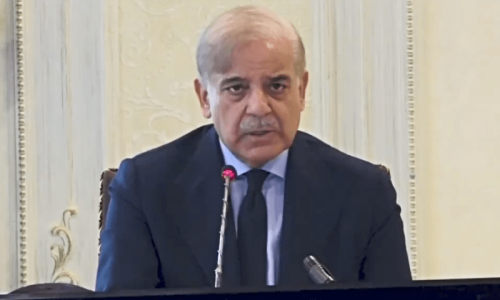BEIRUT, Dec 14: Every year, Salha Solh spends half her small income of $3,600 just to keep her three sons and three daughters from being deported from their homeland.
Solh is Lebanese but her husband is Pakistani, and under Lebanese law she cannot pass her citizenship on to her children. They are Pakistanis in the law’s eyes and need expensive annual residency visas, even though they were born and raised here and have never been to their father’s country.
A few months ago, Solh’s eldest son was picked up by police for not renewing his residence permit on time, and imprisoned for three months until he got a new one.
Nearly every Arab country has similar laws, rooted in Islamic precepts that emphasise paternity as the source of identity. Women’s groups have succeeded in changing such laws in Egypt, Morocco and Algeria and are leading campaigns elsewhere, usually against religious conservatives.
In Lebanon, reformers are finally gaining attention for the issue — through a series of small public protests like one that Solh recently attended, of 100 people, on Beirut’s Martyrs’ Square.
’’It is my children’s right to have Lebanese citizenship,’’ said Solh, who works as a cook and whose husband is unemployed after falling sick recently.
But in Lebanon, the opposition is not only religious but also sectarian and nationalist. Many Lebanese fear that allowing women to pass their citizenship to their children will upset the country’s delicate sectarian balance, or open a backdoor for the large Palestinian refugee population to gain citizenship.
’’Definitely there is sexism’’ in such worries, said Information Minister Tarek Mitri, who supports changing the law. ‘’I fear that this might take a bit of time (to change).’’
He pointed out that many more Lebanese men are married to Palestinians or other foreigners than the reverse, and no one sees their children as anything but Lebanese.
But in the eyes of many — not just the law — a Lebanese woman with children by a foreign father is seen as bringing foreigners into the country.
Lebanon’s population of 4 million is divided between 18 sects, including Sunni and Shiite Muslims, Christians and Druze, and every community is highly sensitive to anything that tips the demographics.
Moreover, Lebanese of all stripes are deeply suspicious of the 400,000 Palestinian refugees who live on the country’s soil. The Palestinians, who live in a number of impoverished camps, have not sought mass citizenship, fearing that it would mean permanent settlement in Lebanon.
Nevertheless, many Lebanese remain wary of giving them any foothold. “The Lebanese constitution prevents all forms of settling Palestinians in Lebanon,’’ said Christian lawmaker Naamatallah Abi-Nasr, who opposes changing the current law.—AP













































Dear visitor, the comments section is undergoing an overhaul and will return soon.